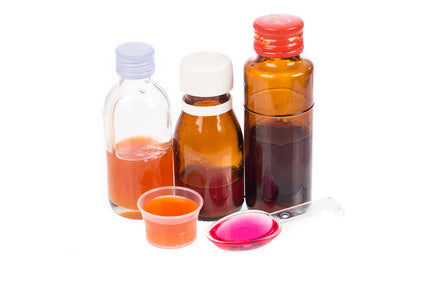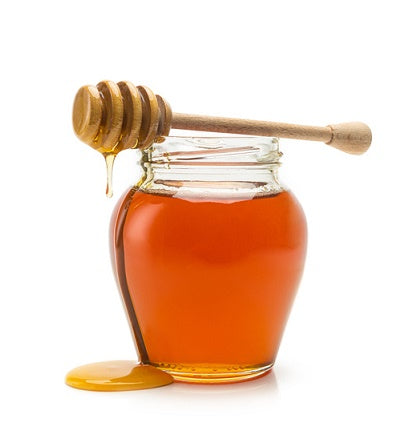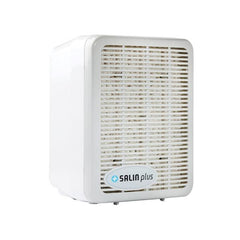Your Cart is Empty

Watching a child cough is disturbing. We stand powerless as their tiny bodies heave and cough and splutter away. Our natural instinct is to help – do something, anything – and silence that noisy, nasty cough. And for many of us, ‘helping’ means reaching for the cough medicine.
To do nothing would make us feel like neglectful parents.
Mounting evidence, however, shows that cough medicines don’t do much good. In fact, they may actually be doing harm. Yet, over-the-counter cough mixture for children remains exceedingly, even frighteningly, popular.
According to a recent poll by the Royal Children’s Hospital in Melbourne, Australians are spending $67 million annually on cough and cold medications for children under the age of 15.
“We’re talking specifically about cough and cold medicines in children under six years of age, where the TGA (Therapeutic Goods Administration) very clearly recommend against these medicines, because of the risks of side effects like uneven heart rate, drowsiness, irritability, even seizures,” said Dr Anthea Rhodes, a paediatrician at the Royal Children’s Hospital.
Dr Rhodes indicates that one of the reasons for this huge usage of over-the-counter remedies is that they are so readily available in pharmacies, with three-quarters of consumers purchasing them with the pharmacist’s advice. Many of the consumers were also advised to administer cough medicines by their doctors.
These statistics add up to big business, when you consider that children, on average, suffer approximately ten coughs and colds per year.
A new study involving 100 children with cough symptoms, performed in Pennsylvania in the US, found that over-the-counter (OTC) cough medicines did nothing to reduce night-time coughing or improve a child’s sleep. This news about cough medicines has not shocked the experts.
“The study results do not at all surprise me”, stated Frederick Mandel, associate clinical professor of paediatrics at Harvard Medical School, and senior associate in Medicine at Children’s Hospital, Boston. “I have found that the OTC cough medications are not very beneficial, and I’ve told my patients the same…Some listen, others feel they need ‘to do something’ so they go to the OTC meds.”
The issue of ‘doing something’ certainly resonated with doctors, with many claiming that purchasing pharmacy-based cough medications satisfied the parents’ anxiety for something to be done. Professor of paediatrics at the Brodie School of Medicine at East Carolina University in Greenville, NC, said: “We have mostly known for years that these medicines helped mothers more than their children.”
Ira S Rubin, paediatrician at Naperville paediatrics in Illinois added “To my knowledge, there has never been strong evidence that “cough and cold” medicines are helpful for kids”.
“We have mostly known for years that these medicines helped mothers more than their children.”
 And the bad news continues. Not only are cough medicines mostly ineffective, but parents administering cough medicine are less likely to monitor the child closely to notice any changes in their condition. The cough medicine has served its purpose in ‘treating’ the condition, the parent feels satisfied that she or he has done their bit and the problem is forgotten. This is a dangerous situation if the child is harbouring a more serious ailment like pneumonia, whooping cough or an ear infection, and the symptoms go unnoticed.
And the bad news continues. Not only are cough medicines mostly ineffective, but parents administering cough medicine are less likely to monitor the child closely to notice any changes in their condition. The cough medicine has served its purpose in ‘treating’ the condition, the parent feels satisfied that she or he has done their bit and the problem is forgotten. This is a dangerous situation if the child is harbouring a more serious ailment like pneumonia, whooping cough or an ear infection, and the symptoms go unnoticed.
If a child has a nasty cough that doesn’t go away, it needs to be monitored, both at home and under the supervision of a doctor. But doctors consider many coughs a healthy sign. A cough indicates that your body is working effectively to remove the excess phlegm and irritants. Therefore, even if cough suppressant were effective, they wouldn’t necessarily be helpful.
Ingredients in certain OTC cough medicines are not benign, either. Despite the recent study looking into the side-effects, researchers noted that children who took cough medicine containing dextromethorphan were likely to suffer insomnia on the nights they took the medication.
Pain medications have similar issues. However, doctors agree that there is nothing wrong with giving pain relief if a child is uncomfortable. Regarding fevers, pain relief may make a child feel better, which is worthwhile in itself, but it won’t necessarily bring down the temperature or eliminate the illness.
Parents like to give the child something so they feel they are helpful. Associate Professor Madlen Gazarian, a consultant in Paediatric Clinical Pharmacology and Therapeutics, says that not all fever is dangerous; it is a common symptom of many childhood illnesses and is part of the body’s normal response to help fight off an infection.
Fevers must always be taken seriously, though, to make sure they don’t develop into a more serious illness. It’s important to watch a child closely to make sure they don’t come down with any other signs and symptoms.
There are still some things you can do to help make a cough more bearable, as well as prevent prolonging the cough. It is still essential that you monitor a child with a cough closely and see a doctor where necessary. The following cough treatments are currently endorsed by the scientific and medical community.
Honey
 Research does show that honey can help to calm coughs, with both the American Academy of Paediatrics and the World Health Organisation recommending honey to calm a cough. When swallowed, honey helps calm the lining of the throat, while the act of swallowing can help suppress a cough. According to Dr Ronald McCoy, from the Royal Australian College of General Practitioners, some research shows that a spoonful of honey every few hours can reduce irritation in little throats.
Research does show that honey can help to calm coughs, with both the American Academy of Paediatrics and the World Health Organisation recommending honey to calm a cough. When swallowed, honey helps calm the lining of the throat, while the act of swallowing can help suppress a cough. According to Dr Ronald McCoy, from the Royal Australian College of General Practitioners, some research shows that a spoonful of honey every few hours can reduce irritation in little throats.
Honey should not be given to babies under 12 months of age, however, due to possible issues with botulism spores.
Saline Sprays
Saline nasal sprays can also be used to keep the upper airways moist. They are easy-to-use, non-toxic and readily available. However, they only help with the upper airways, providing short-term symptomatic relief.
Salt therapy The use of a salt therapy device can do wonders to calm a cough. The device works two ways: it clears the air in a similar fashion to conventional air purifiers, removing any airborne irritants such as dust, cigarette smoke, pollen and any other allergens, and it releases tiny salt particles into the air. Once inhaled, the salt particles line the airways and help eliminate the mucus buildup in the nasal passages, which can cause an irritating postnasal drip. Additionally, expelling the mucus helps to remove the irritants trapped inside the mucus that contributes to a cough.
The use of a salt therapy device can do wonders to calm a cough. The device works two ways: it clears the air in a similar fashion to conventional air purifiers, removing any airborne irritants such as dust, cigarette smoke, pollen and any other allergens, and it releases tiny salt particles into the air. Once inhaled, the salt particles line the airways and help eliminate the mucus buildup in the nasal passages, which can cause an irritating postnasal drip. Additionally, expelling the mucus helps to remove the irritants trapped inside the mucus that contributes to a cough.
A salt therapy device offers a non-invasive, non-toxic solution that is suitable for all ages and health conditions.
Throat lozenges
As anyone that’s sucked on a menthol lozenge while sitting in a crowded theatre can attest, throat lozenges can do wonders to ease a cough! Agreed, they cannot cure it, but they can give great symptomatic relief by lubricating the throat, easing the pain and irritation reducing the urge cough.
Flu vaccine
You can’t vaccinate against a common cold, but you can vaccinate your child against influenza. Once immunised, chances of developing a nasty cough from flu are greatly reduced. The flu virus can be particularly aggressive, so it’s highly recommended that children are vaccinated, especially those with conditions that make them more vulnerable to infection.
Bear in mind, too, that according to the Influenza Specialist Group, the flu is responsible for sending nearly 1500 children to hospital every year – and is responsible for hospitalising more children under the age of five than any other vaccine-preventable disease.
Recent research revealing a lack of benefits in OTC medications does not mean that conventional medicine or trips to your doctor are ineffective. Sick children should be monitored carefully and taken to the doctor if there are worrisome signs. Dr Michael Fasher, a GP with a focus on children’s health, recommends keeping an eye on the ABCDs to determine when a visit to the doctor is necessary. Look for:
A: Reduced alertnessor activity
B: Breathing difficulty
C: The colour of skin in the face is blue or white, rather than pink
D: The child is not drinkingand/or has had fewer than 4-5 wet nappies in 24 hours